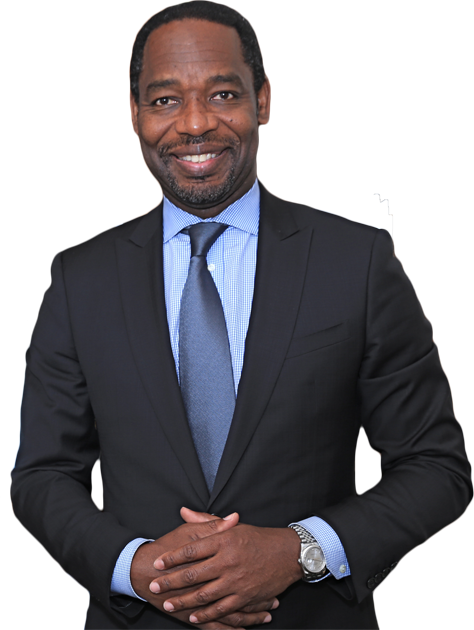Posterior Cervical Fusion
What is a Posterior Cervical Fusion?
A Posterior Cervical Fusion is a minimally invasive procedure that addresses vertebral instability in the neck.
The cervical spine, more commonly known as the neck, consists of the uppermost vertebrae in the spine. Composed of seven small, interlocking vertebrae cushioned by intervertebral discs, the cervical spine is the most versatile and flexible section in the spine. With the support of our spinal discs, the cervical vertebrae allow our head to turn in all directions: side to side, up and down, and a variety of angles. Think about it. Without this ability to move our head, we would have trouble completing the basic activities of daily life: bending the neck to aid in putting on clothes, looking down to do the dishes, glancing both ways to cross the street, and turning the head to safely drive a car. The bones and discs in our neck are used endlessly, and with that use comes wear and tear.
Wear and tear can present themselves in a variety of conditions and symptoms, most of which include pain and reduced mobility. Spinal stenosis can lead to loss of height between the vertebrae of the neck, leading to pinched nerves and bone-on-bone contact. Damaged discs can bulge or herniate, leading to nerve compression and inflammation. Spondylolisthesis can occur, causing a vertebra to slip forward over the vertebra below it. All of these conditions can lead to debilitating pinched nerve pain, instability, and a progressive degradation of the tissues and bones of the neck. When these symptoms become excruciating, debilitating, or unchanged by more conservative treatments, a minimally invasive Posterior Cervical Fusion (PCF) may be beneficial.
A Posterior Cervical Fusion is a surgical method that aims at restoring spinal stability in the neck, while alleviating painful nerve compression. The procedure begins with a small incision in the back of the neck. The surgeon will remove any materials pressing on nerves. This may include bulging or herniated discs, removal of the lamina, or widening of the foramina. Following this decompression, the surgeon will implant screws with connecting rods directly into the affected vertebrae. Bone graft material will be added, encouraging full fusion during the healing process.
Dr. Frazier of NYC Spine is a world-renowned spine surgeon who specializes in minimally invasive procedures like a Posterior Cervical Fusion. He has over 20 years of experience in providing relief to patients who are experiencing debilitating spinal pain or instability. Contact Dr. Frazier today and find answers to your persistent or troubling symptoms!
What are the Benefits of a Posterior Cervical Fusion?
A minimally invasive Posterior Cervical Fusion (PCF) has many benefits, especially when compared to traditional, open-back techniques. Some of the benefits of PCF include the following:
- Smaller Incisions: A smaller incision than traditional techniques leads to less blood loss, less scarring, and an expedited recovery time.
- Less Trauma to the Body: Small incisions and specialized instruments allow for less damage to surrounding muscles and ligaments. This translates to less pain and a shorter recovery time.
- Shorter Hospital Stays: A minimally invasive PCF procedure allows for less time spent in the hospital when compared to more traditional techniques. Most individuals can return home after just a few days in the hospital.
- Advanced Technique & Materials: The advances in the technique and materials used in a Posterior Cervical Fusion ensure a more complete and successful fusion for lasting stability and pain relief.
Before choosing the surgical route, Dr. Frazier will work with you to evaluate your spinal condition, exploring all conservative treatments before even discussing the possibility of surgery. Our team at NYC Spine prides themselves on the ability to provide relief without the use of surgery. If your situation requires it and you could profit from a Posterior Cervical Fusion, you can experience the above benefits (and more) through the practiced expertise of Dr. Frazier.
Do I Qualify for a Posterior Cervical Fusion?
If you are suffering from pain, instability, and limited mobility of the neck, then a minimally invasive Posterior Cervical Fusion (PCF) may be the right procedure for you. Working closely with your physician, it is important to exhaust more conservative treatment options before turning to surgery. It is typically asked that at least 6 months of treatments such as pain management and physical therapy are attempted before choosing surgery.
In some situations, surgery may not be appropriate, however. For those individuals who are allergic to any of the surgical materials, or who cannot handle anesthesia, a minimally invasive PCF may not be possible. Also, if the structural integrity of the vertebrae will not be able to successfully hold and fuse with the surgical materials, such as occurs with osteoporosis, a Posterior Cervical Fusion may not be possible.
The option for surgery will exist on a case-by-case basis. To see if you qualify, contact the team at NYC Spine today. Don’t suffer any longer with debilitating pain in your cervical spine: Allow NYC Spine to help you find relief!

Meet Dr. Daveed Frazier
Dr. Frazier is a Harvard-trained, board certified orthopedic spine surgeon. He’s held an academic appointment at Columbia University College of Physicians and Surgeons and New York’s SUNY Downstate. Dr. Frazier is also a respected lecturer, accomplished researcher, published author on spine disorders and treatment, and a consultant for several international spine companies.
After completing his undergraduate education at Brown University, Dr. Frazier attended Harvard Medical School, where he graduated cum laude. He completed a Harvard internship based at the New England Deaconess Hospital in Boston, MA, followed by a Harvard combined residency before becoming chief resident at Massachusetts General Hospital.
